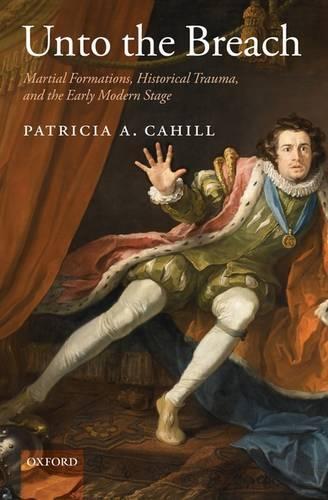Overview
The Elizabethan theatrical repertory was enthralled with the era's martial discourses and beset by its blinding visions. In her richly historicized account of the theater's engagement with 'modern' warfare, Patricia Cahill juxtaposes the new military technologies and new modes of martial abstraction with the performance of war-suffused dramas by Shakespeare, Marlowe, and their contemporaries. Equally important, she shows that even as early-modern playwrights engaged cutting-edge military practices, they routinely trafficked in phenomena resistant to the new rationalities, conjuring up a domain of eerie sounds, uncanny figures, and haunted temporalities. By going beyond the usual protocols of historicist criticism and emphasizing the complex dynamics of theatrical modes of address, this wide-ranging study investigates the representation of early-modern war trauma and recovers for us a compelling sense of the intimate relationship between affect and intellect on the Renaissance stage. Intervening in ongoing conversations about the drama's role in shaping the cultural imaginary, Unto the Breach shows that, in an era of escalating militarization, England's first commercial theaters offered their audiences something of incalculable value - namely, a space for the performance and 'working through' of what might otherwise remain psychically unbearable in war's violence.
Full Product Details
Author: Patricia A. Cahill (Assistant Professor, Emory University)
Publisher: Oxford University Press
Imprint: Oxford University Press
Dimensions:
Width: 16.10cm
, Height: 1.80cm
, Length: 24.00cm
Weight: 0.555kg
ISBN: 9780199212057
ISBN 10: 0199212058
Pages: 240
Publication Date: 13 November 2008
Audience:
College/higher education
,
Undergraduate
,
Postgraduate, Research & Scholarly
Format: Hardback
Publisher's Status: Active
Availability: To order

Stock availability from the supplier is unknown. We will order it for you and ship this item to you once it is received by us.
Reviews
engagingly written Goran Stanivukovic, Times Literary Supplement Professor Cahill succeeds in providing fresh and original interpretations of familiar canonical texts and in illuminating insights into a number of more obscure non-canonical works
engagingly written Goran Stanivukovic, Times Literary Supplement
engagingly written * Goran Stanivukovic, Times Literary Supplement * Professor Cahill succeeds in providing fresh and original interpretations of familiar canonical texts and in illuminating insights into a number of more obscure non-canonical works an original contribution to an expanding body of interdisciplinary work * Literature and History *
Author Information
Patricia Cahill is an Associate Professor of English at Emory University who specializes in Shakespeare and in Renaissance drama and culture.




